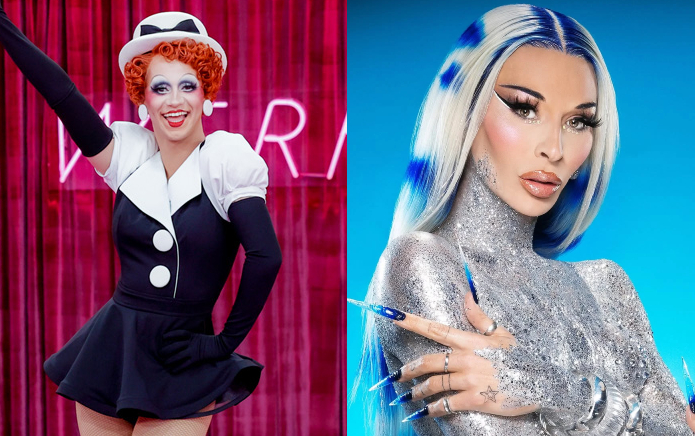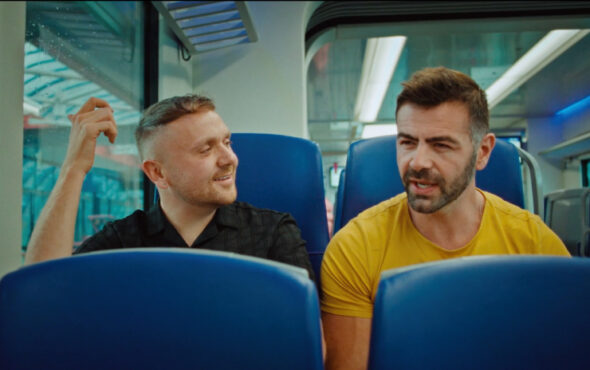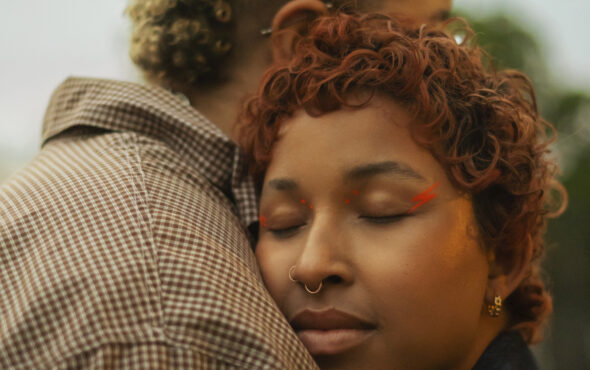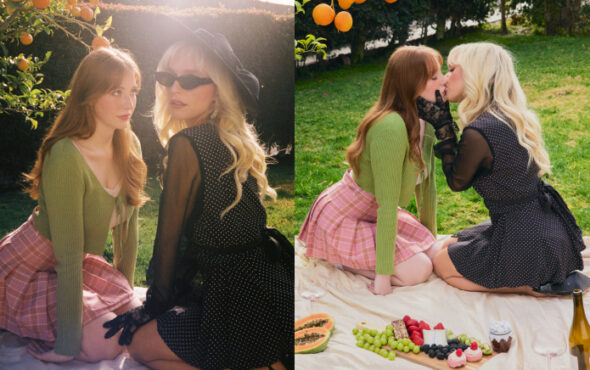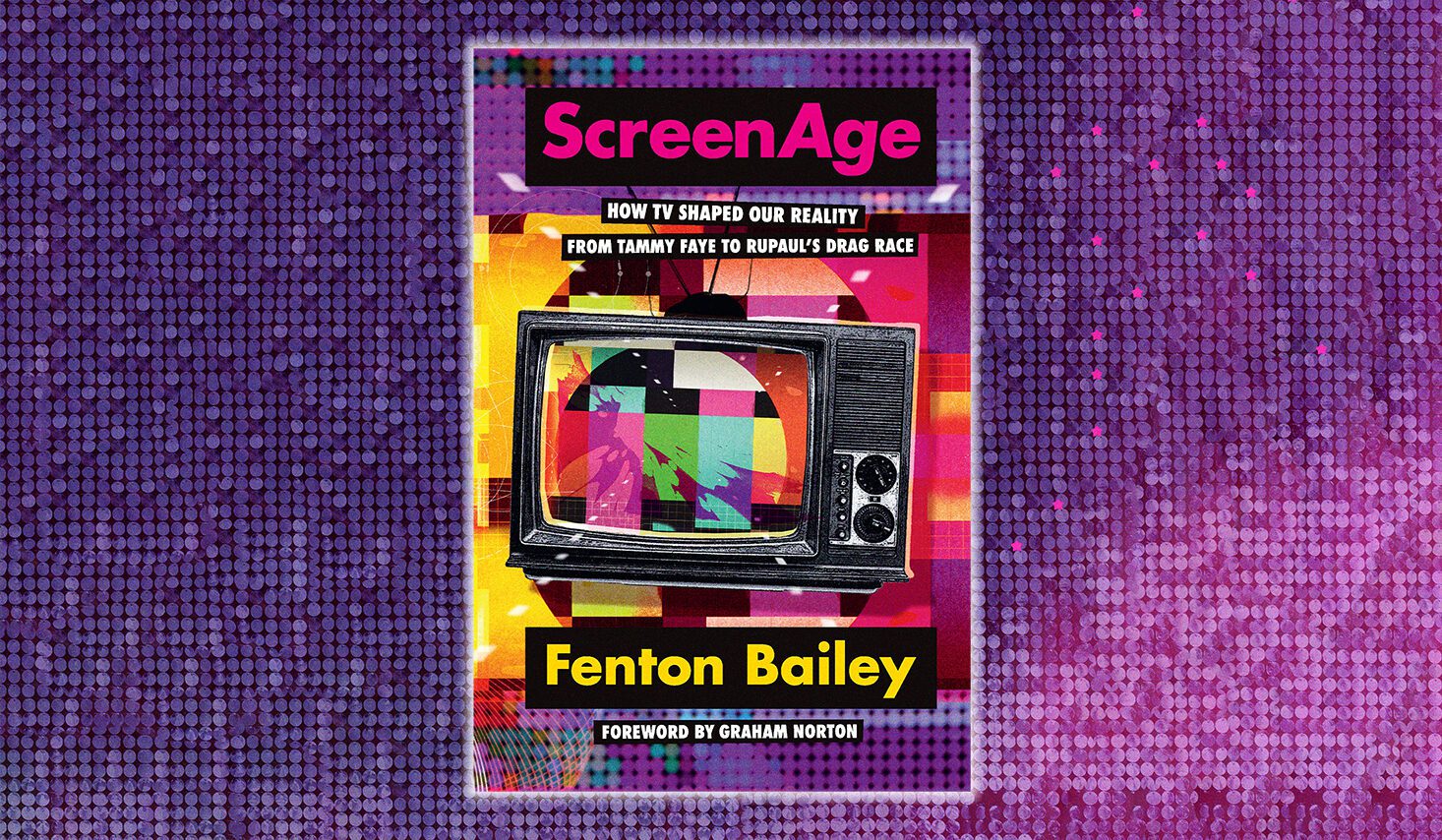
“Drag has become mainstream. Being gay became cool,” Fenton Bailey writes in ScreenAge. “From being the criminal outsider, being queer has even become representative of the way the outsider voice is common to us all.” Subtitled ‘How TV shaped our reality, from Tammy Faye to RuPaul’s Drag Race’, the filmmaker’s memoir offers an in-depth analysis of how – in his words – “popular culture is queer culture” while chronicling how he and his partner, Randy Barbato, changed the course of reality television and queer representation on the small screen with World of Wonder.
Founded in 1991, the production company has earned universal acclaim thanks to productions such as The Eyes of Tammy Faye (2000), Mapplethorpe: Look at the Pictures (2016) and RuPaul’s Drag Race (2009 – present); the latter of which has won 30 Primetime Emmy Awards (so far!), catapulted over four hundred drag entertainers to global stardom and produced over a dozen international spin-offs.
“Drag is a great medium for our times,” Fenton explains. “Another reason I wanted to write the book is because so many things that I love and adore, that have been inspirational to me, have been camp. I always felt like camp got short shrift, considered marginal or naughty or just gay in a niche way. I just know that’s not true, and so, I wrote the book to give my version on understanding what camp is.”
Fenton speaks with GAY TIMES about the origins of ScreenAge, how Tammy Faye “changed the course” of his and Randy’s lives (and careers), and why popular culture has “proven to be the great workaround for queer people to be visible”.
Fenton, thank you for introducing me to some queer media I’d never heard of before, such as Café Flesh. This sounds insane?!
Oh my gosh, yes! It was so funny writing this, I started to remember all these things. So, Café Flesh. What else?
I need to check out The Naked Civil Servant. I’m not sure where I’m going to find these films, but I’m going to find them!
That is a good question. It should be streaming somewhere, it’s so good. And John Hurt… I think it was quite an early role of his, too. The 70s was such a different world. It was grim, the prospect of being gay. When I sat down to write it, I started to think about things like [A Very English Scandal], the fabulous series with Hugh Grant. That was such an incredible story.
ScreenAge is part-memoir, part-examination of pop culture and queerness. Did you always intend for it to be this way?
No. It weaves down the motorway, veering between lanes. There was one point where Randy and I were talking and we said, ‘Oh my gosh, pop culture is queer culture.’ Apart from seeing it here and seeing it there we began to think, ‘How has this happened?’ I definitely remember, as a kid, pop culture was something for teenagers and you would grow out of it and become an adult. That has not happened, pop culture has grown up with us. The other thing that’s happened is: it’s queer culture. I’ve been trying to figure it out. I had a hunch, starting the book, but writing it there were things I realised. It was a process of discovery.
I don’t know who I’d be without popular culture?
Exactly. Pop culture is the queer person’s workaround for being judged invisible. The 70s were all about coming out, but there are other more subtle ways of denying the visibility of a gay person. Denying visibility is a great way to pretend people don’t exist. That is such a strong, persistent thing, even in America with ‘Don’t Ask, Don’t Tell.’ That is the epitome of the idea that you don’t exist. That’s the answer to, ‘Why the ScreenAge?’ because it’s proven to be the great workaround for queer people to be visible, and what a fabulous job everyone has done.
You recount some memories from decades ago in ScreenAge…
I’m very old, Sam! I’m from the Jurassic period!
Fenton, I can’t remember last week. So, what did the process for this book look like? How did you access some of these memories in such detail?
I have a problem with that too, I can’t remember what I did this morning. But, for some reason, events linger. Also, the unflattering way of saying this is that I’m anal retentive. I have my diaries from when I was 12. I’m sort of a collector. I’m probably a hoarder, a borderline hoarder. I’m not a minimalist person. There are moments that are incandescent in your life. One of them was watching The Naked Civil Servant. Another was meeting Ru and another was meeting Randy. Sometimes, something happens to you and you just know. It’s blindingly clear, certainly with Ru it was. ‘Oh my gosh, he’s a star.’
After re-reading your diaries, were there any particular memories that stood out to you?
[David] Bowie… Top of the Pops. You talk about how you don’t know who you’d be if it weren’t for pop culture. Well, Top of the Pops was the queer lifeline and I think it was for everyone in Britain at that time. That’s one of the takeaways: the idea that queer culture is a niche thing or only for the gays. It’s not. It’s universal.
In your book you write: “It was in Atlanta that we first met RuPaul and realised that he was a star and that we were not.” Do you not consider yourself and Randy stars?
Oh no! Not really. One of the things I always go back to in my mind is standing with Randy watching a drag show thinking, ‘The talent here… Everyone should see this jaw-dropping experience.’ It always seemed to us that drag was this mashup of pop culture. It would make fun of all the celebrities and pretensions and excess, but at the same time celebrated it and loved it. It was always the right amount of wrong. It would take everything that was kitsch, everything the culture looked down on and thought was rubbish and celebrate it and lift it up. Yes, make fun of it, but also celebrate it. I just don’t think there’s anything else that does that quite like drag. I remember when Ru lip-synced a Champale commercial. Do you know what Champale is?
Fenton, I do not.
Champale was in the 80s, it was a mixture of beer and champagne. Ru would lip-sync these commercials. We all grew up on TV, but the commercials were really important too. Yet, the culture thought commercials and advertisements were trash, but they were often the thing that was better than the programme. So, Ru would lip-sync these Champale commercials and that’s when we were like, ‘Oh my gosh, he’s a star,’ and we realised that it was probably better for us to stay behind the camera!
Is there footage out there of this?!
Right? I don’t know. If you want to find Pop Tart performances, they’re on YouTube. I’m not going to tell you where, I’m just blushing thinking about it. One of my favourite stories is that we actually ended up having a big hit. This was years after we’d given up The Pop Tarts and Armand Van Helden sampled our first single in its entirety and released it, and it was a hit. A big hit, actually.
How are you not stars then, Fenton? How are you not stars?
Thanks to Armand Van Helsen, we are stars. The reunion of The Fabulous Pop Tarts coming soon!
I was interested to read that everything links back to Andy Warhol for you. Can you talk to me a little bit about that?
Warhol is tremendously important to us, and that’s such a good question. I don’t entirely know why, in the sense that he just was. Growing up, I was aware of Andy Warhol and I always loved the coke bottles and the brillo boxes, but I never really got the rest of it. He left behind such a vast body of work and I still think we’re seeing the things that he said would happen happen. Especially “everyone will be famous for 15 minutes”, which is perhaps his most famous saying. I’ve come to believe that want he meant was that the sissies and the queers in the factory, that’s who he meant would be famous. I don’t think he meant that everyone would be famous. He really anticipated social media and got that, in a consumer society, people are gonna wanna be the product.
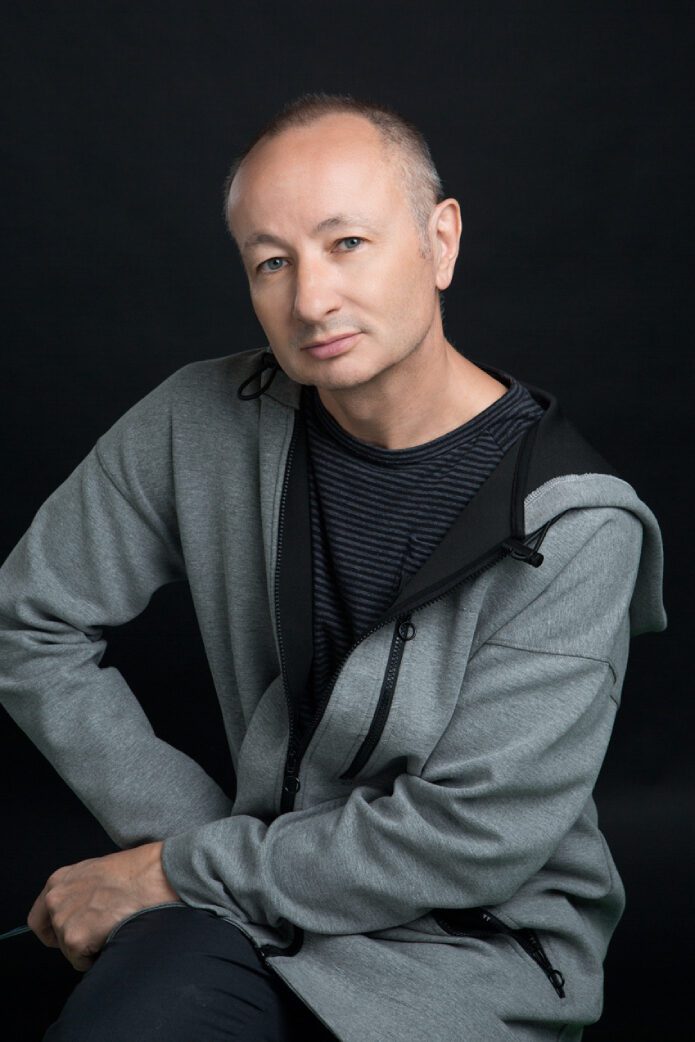
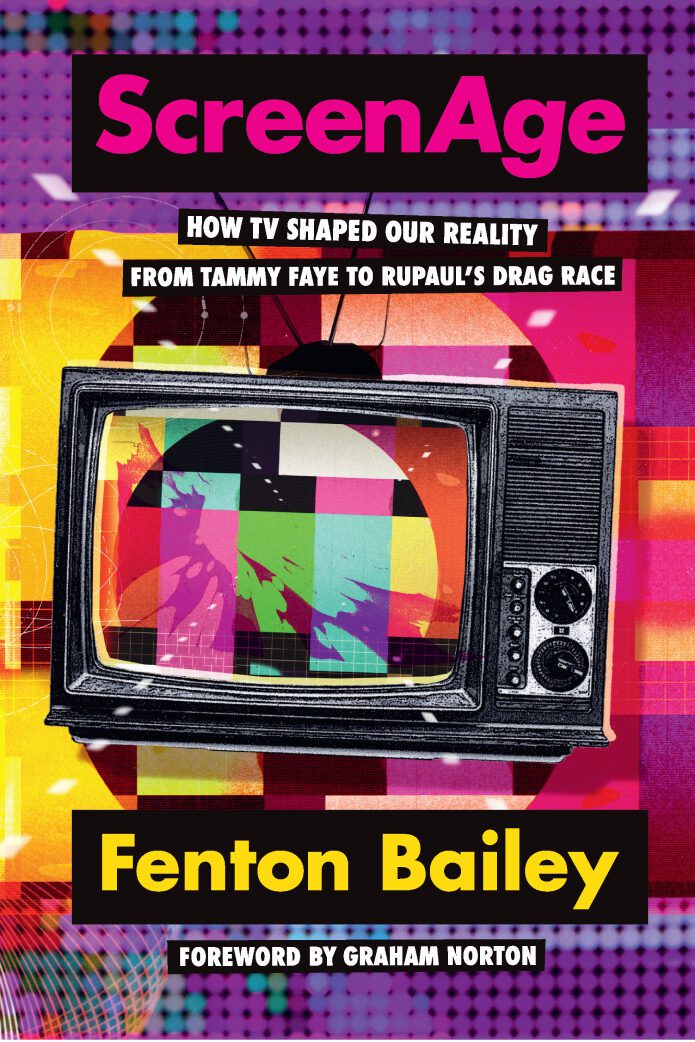
Following on from that, you also write: “Drag has become mainstream. Being gay became cool. From the criminal outsider, being queer has even become representative of the way the outsider voice is common to us all.” Do you remember the specific moment that you realised that being queer was no longer taboo, or on its way to becoming more accepted?
There was a moment, actually. It was when we were making The Eyes of Tammy Faye. We went out to Palm Springs and there were all these mountains. On one of these mountains is a giant, illuminated cross. We thought it would be great to take Tammy up there and to shoot some b-roll with her. We drove up in a truck and it was an unpaved road and it was getting dark. We start talking to Tammy and I can’t remember what the question was but she said, ‘I don’t label people. We’re all made out of the same dirt and God doesn’t make any junk.’ She’d probably said it before and many times after, but I think in that moment, that’s when I realised that being gay was… It’s a slightly different answer to your question, but that’s when I realised that being gay was okay. Not only okay, but it was cool. Tammy Faye was such an inspiration to me and Randy because she was a televangelist and a Christian and, all too often in America, those people are often against our sexuality and think we’re all going to hell and that we’re diseased and a threat to society. She wasn’t like that at all. That was a turning point in my life, and that was in the mid 90s; quite late really.
The section about Tammy is my favourite part of ScreenAge. As she was such a close friend of yours and Randy’s, how did it feel reflecting on some of these really beautiful and painful memories?
It’s just too bad she’s not here today. She’s an example of someone who leaves footprints in your life. Even though she’s gone, there isn’t a day that me and Randy don’t think about her. It was moving but thank goodness, she had such an influence on me and Randy and really changed the course of our lives. I love that Jessica Chastain turned the documentary into a movie. I love that it’s called The Eyes of Tammy Faye and I love that it won two Oscars! I feel like it’s a win for Tammy and Jessica’s speech was so gracious and literally channelled Tammy Faye. As gay people, we cannot hear enough that we are okay and that we’re not bad. It wasn’t a performance, it was like a drag show in the sense that she got Tammy. Tammy always said she was a drag queen and I think by that she meant, ‘I’m in on the joke.’ There is so much ridiculousness in the world, but also, you don’t have to be bitter. You can have fun with it. Tammy was very drag in her approach. Jessica’s version of Tammy wasn’t an actor playing a part, it was a drag performance of Tammy, which is the highest compliment! She really understood all the things that Tammy was saying. I’m getting teary just thinking about it.
I spoke with Raven about her relationship with RuPaul a few weeks ago, and she said their approach to life is the same and that’s laughing at the absurdity of it all, that drag is, essentially, that state of mind.
Absolutely. That’s absolutely right. I think drag is a great medium for our times. I’m slightly veering off here, but another reason I wanted to write the book was that so many things that I love and adore, that have been inspirational to me, have been camp. I always felt like camp got short shrift, considered marginal or naughty or just gay in a niche way. I just know it’s not true, and so, I wrote the book to give my version on understanding what camp is. It’s this idea that we live in these performative times. This media world has been created in our generation and, as a result, we’re all performing all the time. It goes back to Ru saying, “You’re born naked and the rest is drag.” We are all born naked and everything we are wearing is drag.
ScreenAge highlights how art imitates life. So, how do you think the Drag Race franchise has impacted LGBTQ+ rights and visibility around the world?
Drag Race is not the only show, by any means. There have been so many other queer shows that have helped pave the way, but we’re here, we’re queer and we’re visible. Now that we’re seen, people are adjusting the way they think about queerness. Before the Screen Age, every family would have a gay uncle or a queer person in it, but as a family and as a society, they could function by ignoring that and not talking about it; not accommodating or even recognising that person. It would be the secret. It would be the shame. That has changed and I love that kids today can embrace Drag Race and can bring their parents to DragCon because there is nothing to be ashamed of. Queer people have a lot to give and it’s a better world where any kind of person isn’t shoved to the side or ignored or told they are wrong. It shouldn’t exist.
As ScreenAge explores how far LGBTQ+ representation has come in our new age of television, what changes would you like to celebrate 20 years from now?
Reality TV has gone through a change in that some of the earlier iterations of reality TV were pitting people against each other or putting them in potentially terrible situations, like There’s Something About Miriam. Remember that? The dating show where the guys went into a house…
They didn’t know Miriam was trans, right?
None of the guys knew. What we’ve also seen in Drag Race is an evolving camaraderie between the queens. Yes, they’re in a competition to win. At the same time, they’re all there for each other. The bonding and the sense of community is really strong. That’s going to continue to evolve and grow. It’s impossible to say what the future holds. I hope everyone is still here in 20 years! Every day seems like we’re teetering on the edge of an apocalypse.
I saw a tweet that said a meteor the size of the Eiffel Tower was heading for Earth and thought, ‘C’mon then! Hurry up!’
Right? The meteor. Twitter. Trump. All that craziness. I think the inspiring thing about television is that its mission is to make everything visible. That’s why it’s so different to the movies. The movies are all about creating magic and an illusion. It’s distant and remote, yet in television we go behind-the-scenes. We show what it is. Again, that’s why drag is perfect for TV because you see the construction and know that it’s a construction. It’s a creation. It’s an expression. That’s why it’s so different to the movies. TV is a revelatory medium. I’m rambling aren’t I? I probably won’t be here in 20 years, so I don’t have to worry about it.
ScreenAge: How TV Shaped Our Reality, From Tammy Faye to RuPaul’s Drag Race by Fenton Bailey is published by Ebury Press and is available in all good bookstores now. Order here.
